Overland Venezuela Travel
Pan American Highway > Venezuela
Currency to display:
Contents
- 1 Visiting Venezuela
- 2 Entering Venezuela with a Car or Motorbike
- 3 Driving in Venezuela
- 4 Gas and Diesel price in Venezuela
- 5 Safety and Security Considerations
- 6 Camping in Venezuela
- 7 Navigation
- 8 Special Overland Travel interests
- 9 Vehicle Maintenance
- 10 Buy or sell a car or motorbike in Venezuela
- 11 References
- 12 Helpful External links
Visiting Venezuela[edit]
Venezuela is an interesting place to visit, people are friendly but you should also travel cautiously there. There aren't many official campsites but the black market exchange rates and the want for USD make guesthouses and hotels, usually with secure parking area, less expensive than parking fees elsewhere in the world. The major attraction in Angel Falls, easily reached from Ciudad Bolivar. The borders take time, but with patience you'll get through.You can only get in or out through the Brasilian border on the south, to/from colombia only pedestrians.
You can wild camping only in Canaima National Park "La Gran Sabana" route 10 south to Brazil. Never drive during the night. Ask truck drivers for safe routes. Police Officers and militaries are mostly corrupt. Be alert at checkpoints. Never leave you rig unattended.
Avoid Carretera Los Llanos, Valle de la Pascua, Dos Caminos, and Barlovento close to Caracas (Road Pirates) use coast roads and troncal 10 south.
Keep your fuel tank full, it is practically free but difficult to find outside de cities.
Entering Venezuela with a Car or Motorbike[edit]
Correct as of: January 2015 it is only possible to get in or out with a vehicle through the Venezuela/Brasial Border (Troncal 10 south) Colombia border only pedestrians.
Required Paperwork[edit]
(To check if you need a travel Visa for Venezuela, application instructions and fees see: Venezuela Visa online application at VisaHQ.com)
- Passport of registered owner.
- Drivers license of registered owner.
- Original vehicle registration.
- Third Party Vehicle Insurance for Venezuela (may be an international insurance as long as there is "proof")
- Photocopies of all of the above.
Process at border[edit]
Just past the border, you need to stamp your passport. This is not necessarily to be done the person him/herself. If you are traveling with 2 or more persons, the other person can already go to the office to stamp the passports. -This depends on the border as we (Lost World Expedition) were asked to both be present at the Brasil/Venezuela border.
Jan 2015, coming from Boa Vista (Brazil) Proceed to immigration for personal stamping of passports. Then proceed to Customs (if customs is closed (they have short hours) you will be requested to return the next day). At customs, get a importation form, compete this form and queue with all photocopies (as above) and originals (as above). If you don't have insurance you can drive into Santa Elena to buy it.
Cost of entry[edit]
No entry fee
Permitted length of stay[edit]
90 days for passport and vehicle import permit
Extension of stay[edit]
Describe the process to extend the permitted length of entry for the vehicle, if possible.
Storing a vehicle and temporarily leaving the country[edit]
The vehicle will be stamped into the owners passport, so that you don't leave without it.
Describe if/how a vehicle can be stored, and for how long.
Also mention if the owner / temporary importer can leave the country while the vehicle is in storage.
Exiting with a vehicle[edit]
Border crossing to/from colombia with vehicles is no longer allowed sinse 2015.
Departing at Maicao for Colombia the Aduana office (Seniat) is about 10 kilometres before the border. You should drop off your vehicle import note and get your passport stamped (where they marked your passport with the vehicle details on entry). At the border you then get your passport(s) stamped for your personal exit(s). Continue to the Colombian side.
Driving in Venezuela[edit]
Recommended books for Overlanding in Venezuela[edit]
Travel insurance for Venezuela[edit]
World Nomads offer the most flexible Travel Insurance at the best prices for multi-country / multi-year trips. You can buy, extend and claim online, even after you've left home.
Vehicle insurance requirements[edit]
Car insurance is required in Venezuela. Previous writers said it couldn't be bought at the border (maybe Colombian border?) but it can be bought in Santa Elena on the Brazilian border.
Cost of vehicle insurance[edit]
$35.00 USD for 1 year (minimum period).
Look for Shopping Centres, they usually have a booth that sells it. you are looking for "SOAT"
note that Venezuela has massive inflation (Jan 2015), so any prices quoted may have changed greatly, but this is balanced by an inflated black market currency rate.
Driving license[edit]
A driving licence is required. (Not an international driving licence).
Driving side of road[edit]
Right.
RHD vehicles can be driven in Venezuela without a problem.
Mandatory items in vehicle[edit]
State any mandatory items that must be carried in the vehicle. (i.e. safety triangle, first aid kit, fire extinguisher, etc.)
Roads[edit]
General Road quality[edit]
Usually the roads are in good condition, there are highways that pass through major cities in very good condition.
Road signs[edit]
Briefly describe the overall quality & existence of road signs for directions and hazards.
Toll roads[edit]
There are almost no toll roads in Venezuela. 99% of the toll booths that you pass through are not in use, everyone just slows down a little. There will often be a police presence there.
Bribery in Venezuela[edit]
The bribery can be common if your vehicle is seen colorful, this can arouse the interest of the authorities and their curiosity, a good way to handle this is to remain friendly and calm, if authorities percisten you can negotiate a bit, but never for very large amounts of money.
See the bribery tips page for advice.
A very good way to avoid having to pay money to police officers or others, is to act like you absolutely don't understand them. Utter a few basic words in your worst Spanish, look them very friendly in the eye, look like you are having difficulty understanding even the simplest words, and keep on doing that till they let you go. Most of them don't speak English anyway.
And if they do speak a little English, you could for example demand that they call your ambassador to translate properly. Big chance that they back off.
Only allow one officer in your vehicle at a time, this way you can better keep an eye on things.
Checkpoints[edit]
Now and then you'll meet some checkpoints, and even some kind of customs (in between two districts). When your paperwork is okay, most of them will give you no problems, and we met some very friendly people at those points. Other checkpoints people were very "stiff", but also correct. At just a few checkpoints they'll try to get money from you (see "bribery"). If your papers are okay and they still give you problems, try to stay friendly and keep on saying the same things over and over again, like you don't understand them, till they let you go.
Traveling with pets[edit]
List the entry requirements and anything else required to travel with a pet.
Gas and Diesel price in Venezuela[edit]
Last updated: December 2018
Currency and unit to display:
Price will depend also on which exchange rate you use: official or black market. As of December 2018, with the "black market" exchange rage, gasoline and diesel are basically free.
| Gasoline Grade | Price |
|---|---|
| Regular | $0.01 USD per Liter[1] |
| Diesel | $0.00 USD per Liter[2] |
Link to external websites with price & quality information, if available.
Gas and Diesel Availability / Frequency[edit]
Foreign registered vehicles cannot legally buy fuel within 100kms of the border, and for diesel vehicles coming from Brazil the distance is actually about 180kms (the first diesel is at Km 88). At sales points they are supposed to only fill one tank and there is a sales limit of 60litres to foreign vehicles (this was told to us by the sales assistant who just put 120litres in our 2 tanks.. so, you can be lucky). Black market fuel may be available, but there are reports of the diesel being dirty and blocking filters. Between the Brazil and Venezuelan border foreigners can purchase fuels at a rate that is more than Venezuela but considerably less than Brazil. Note also that vehicle parts might not be available in Venezuela (there is a shortage).
Briefly describe if gas shortages are known to occur.
Also state the approximate average distance between gas stations. This is a very rough estimate.
Gas and Diesel Quality[edit]
It is very difficult if not impossible to get fuel within a few hundred KM of the borders for any vehicle without a Venezuelan number plate. When you enter, be sure you can cover 300km or so.
The diesel quality in general seemed fine, however the diesel quality of some "black market" diesel at the brazil border was so bad it blocked our fuel filters within 20km.
Safety and Security Considerations[edit]
Driving at night[edit]
Do not leave your vehicle on the streets unless guarded. Be very careful about where you camp at night. Wild free camping in the Gran Sabana has been trouble free.
Discuss driving at night and if it should it be avoided. Mention why.
Vehicle parking[edit]
Discuss if vehicles can be parked on the street, if they are considered "safe" at night. If vehicles can not be parked on the street, list the other options that exist.
Special driving considerations[edit]
A List of special things to be careful of (i.e. Unsigned speed bumps, abnormal road rules, people or animals on the road, etc.).
List any roads that are not recommended to drive for safety or other security reasons.
Security advisories and information[edit]
- Country Specific Information - U.S. Department of State
- Travel Reports and Warnings - Foreign Affairs and International Trade Canada
- Travel advice by country - Foreign and Commonwealth office (U.K.)
- Travel Advice for Venezuela - Australian Department of Foreign Affairs and Trade
Camping in Venezuela[edit]
Free camping on city plazas in okay with plenty of people around to keep and eye on things. Also wild camping in the Gran Sabana has been trouble free.
In Ciudad Bolivar there is a place 'Pousada la Casita' that is on a large fenced compound, fully fenced with camping space (toilets, showers, restaurant onsite, well maintained), also safe to leave your vehicle for a trip to Salto Angel (Angel Falls) or elsewhere. Interesting for overlanders is that they also have a pit so that you can do some mechanical work on your vehicle (bring parts, but you should be able to get oil for oil changes). If you don't do your own mechanical work you can book a guy on staff who does the pousada's vehicles (Toyota Landcruisers). Ask a motor taxi to guide you there as it is difficult to find.
Describe if organized "pay" camping is common. List the facilities commonly found at these campsites.
List the approximate average price range of camping in organized campgrounds.
Also discuss the possibility of "wild" or "roadside" camping. How common is it? Is it considered safe, or a bad idea.
Camping guide books[edit]
List and link to books specifically for camping.
Drinking water[edit]
We traveled by camping truck with a huge water tank. We refilled at water shops who sold the 20L water cooler bottles. We would refil our tank while parked outside these stores. This was working out at about Error in price tag: The currency attribute must be specified. per bottle. There were taps at some fuel stations, but when we asked we were told it was not potable. Even the fuel station staff were using the 20L water bottles for drinking.
[edit]
Paper maps[edit]
Reise Know-How are amoung the best paper maps. Purchase better paper maps before arriving in Venezuela. However, on the Santa Elena border (Brazil) you can buy a map that 'will do the job' while waiting to process your car paperwork (in Jan 2015 this was a 6 hour wait, so people were selling things to the queue).
GPS Maps of Venezuela[edit]
Open Street Maps have a free download for Venezuela. Good for main roads, but not so good in town areas.
Venrut is recommended on Wikivoyage Venezuela. Waze online GPS is very accurate and alert you for polive checkpoints and real time traffic
Review different GPS companies, quality and coverage (Tomtom, Garmin, OSM, Tracks4Africa). (with links to each).
GPS co-ordinates for camping, propane, gas, repairs, etc. in Venezuela[edit]
LPG Gas is available at numerous fuel stations across Venezuela.
- iOverlander is a website and iPhone application designed by Overlanders, for Overlanders. It contains GPS co-ordinates and reviews for camping, hotels, propane, water, mechanics, borders and much more.
Link to sites that have a list of GPS co-ordinates (or directions) for camping locations (including "wild" campsites), propane filling, gas stations, repair shops, places of interest, etc.
Special Overland Travel interests[edit]
The Gran Sabana region is just above Brazil. It is the most relaxed and safe part of Venezuela, and we wild camped all over the place there.
Venezuela has a big difference in currency exchange rates available, there are many different rates for different purposes. Exchanging on the black market is illegal, but official rates make a chinese meal in a cheap cafe cost $50-100. Be discreet when changing money. As of Jan 2015 the black market rate was 150 bolivars to $USD1. Numerous websites will give you an idea of current rates and the reasons for all the different rates.
Product shortages are common in Venezuela. Bring anything you can't live without. Currently and past shortages include toilet paper, milk products, shampoo, car parts.
Do not expect that you can use the black market currency rates to get cheap shipping or airfares. Shipping is to be paid on arrival at your destination in USD/Euros. International airfares are paid in USD, using credit card.
Vehicle Maintenance[edit]
Dealers[edit]
4x4s / Trucks
- Toyota Global Dealer Locator
- Land Rover International Dealer Locator
- Mercedes Benz International (select country on bottom right)
- Jeep International site locator
Motorbikes
Local Garages[edit]
- Geo4WD - Top notch guys, very knowledgeable
Buy or sell a car or motorbike in Venezuela[edit]
Buy
Describe how a foreigner can buy a vehicle.
List any difficulties or limitations on where the vehicle can be driven.
Sell
Describe how a foreigner can sell a foreign-plated vehicle, or list not possible.'
References[edit]
Links to the source of any information - blogs or discussion forums, etc.
- ↑ https://www.globalpetrolprices.com/gasoline_prices/ Global Petrol Prices website, petrol
- ↑ https://www.globalpetrolprices.com/diesel_prices/ Global Petrol Prices website, diesel
Helpful External links[edit]
Add any helpful external links here.
- Venezuela: Visa and Passport requirements | World Travel Guide
- Health Information for Travelers to Venezuela - Center for Disease Control and Prevention
- Venezuela travel guides at wikivoyage
- Venezuela - Wikipedia, the free encyclopedia

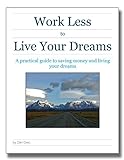
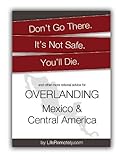
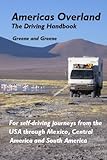
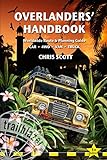
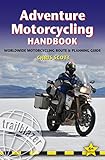


![Caribbean Classic [laminated] (national Geographic Ref...](https://images-na.ssl-images-amazon.com/images/I/51Btip76BZL._SL160_.jpg)